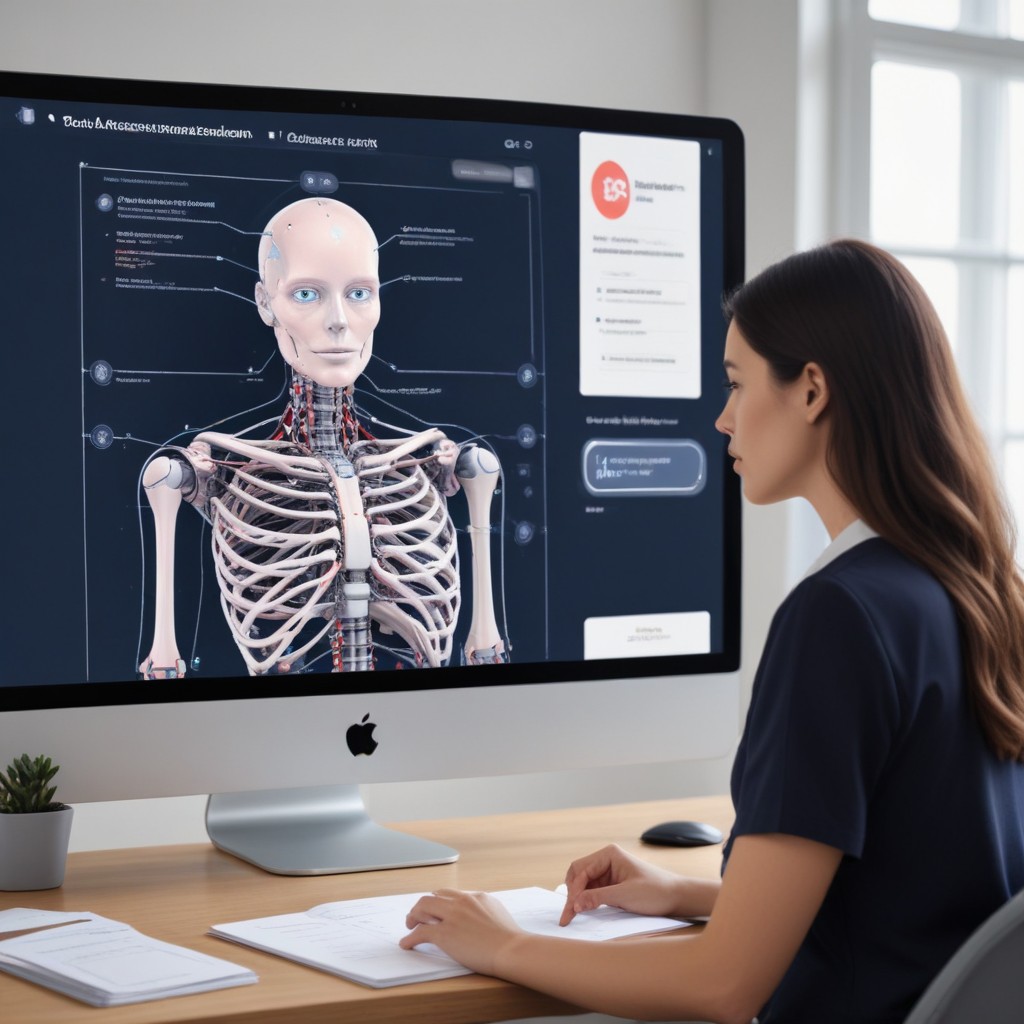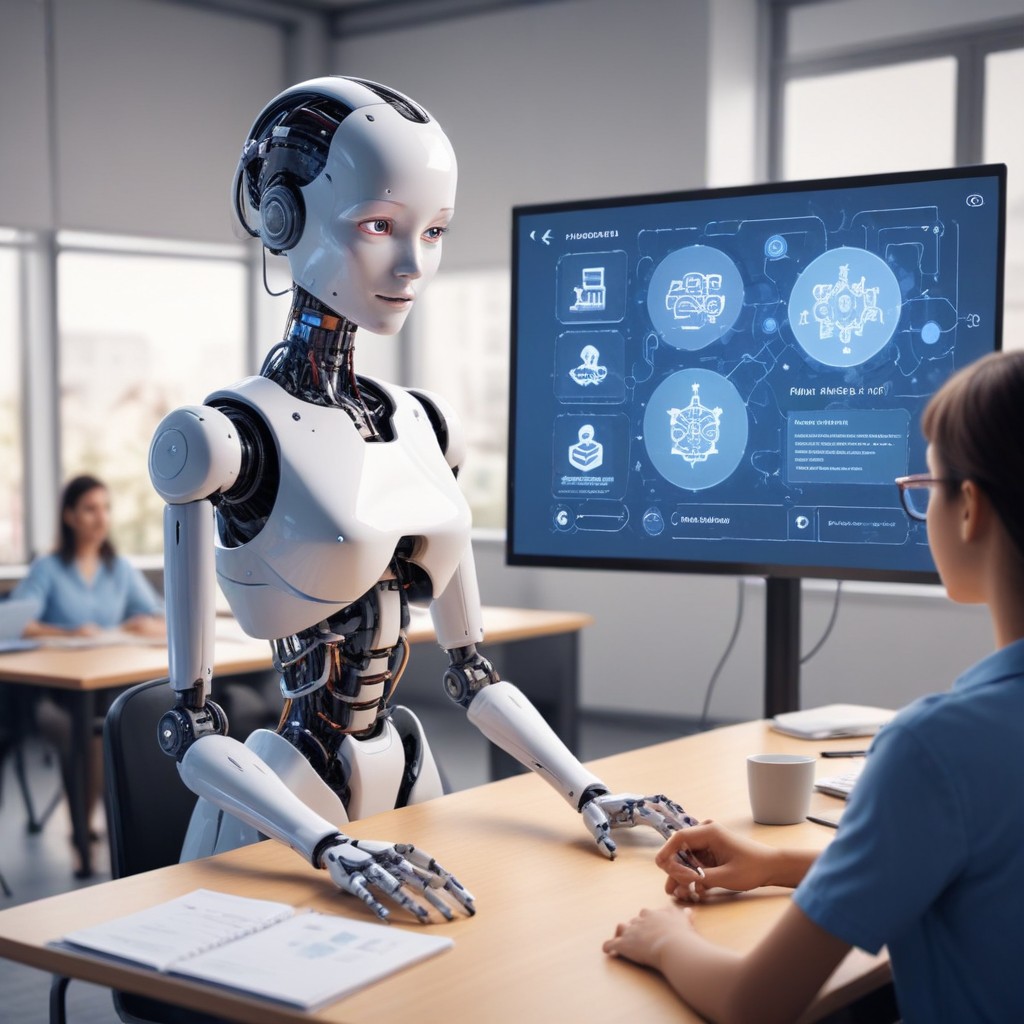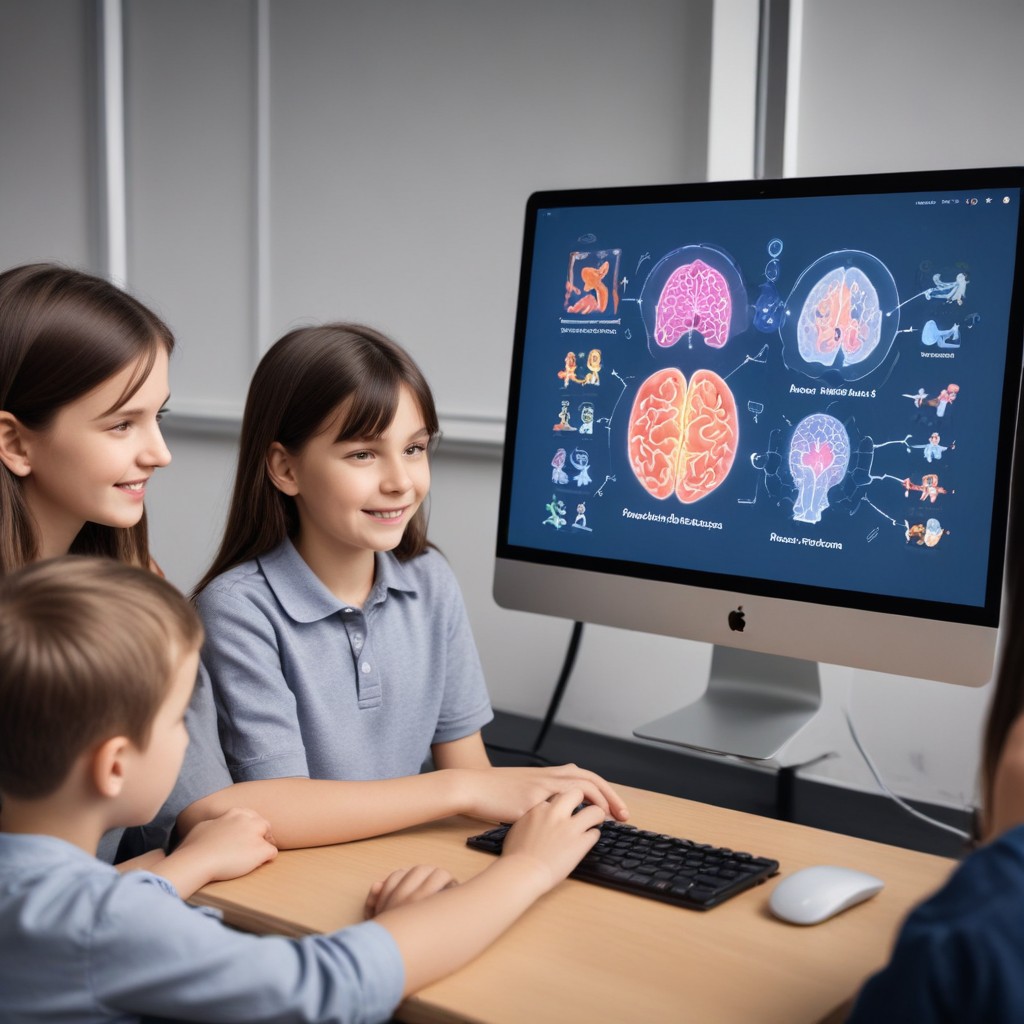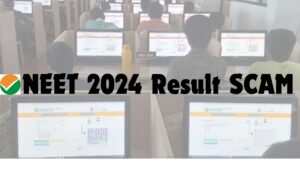The Transformative Role of Artificial Intelligence(AI) in Education.
Harnessing AI to Cater to Diverse Student Needs
Artificial Intelligence (AI) has emerged as a pivotal tool in meeting the diverse learning needs of students globally. its integration into educational systems has not only enhanced operational efficiency but also paved the way for more effective learning outcomes. Emphasized in the National Education Policy(NEP) 2020 and the National Curriculum Framework(NCF) for School Education, the integration of technology and innovation, particularly AI, is seen as indispensable for preparing students for the future. The NEP and NCF underscore the importance of nurturing 21st- century skills like Critical Thinking, Problem-Solving, Creativity and Collaboration, all of which AI can foster through various means such as project-based learning, interactive simulation, and adaptive learning.


Integrating AI into Education Systems
Recent years have witnessed a surge in the integration of AI into education systems worldwide. From automated grading systems to virtual classroom assistants, AI-powered tools have become ubiquitous, streamlining administrative tasks and providing data-driven Learning Management Systems(LMS) to enhance teaching efficiency and student engagement. Moreover, AI can play a crucial role in identifying individual student learning gaps and tailoring remedial content based on diverse learning styles withing classrooms.



Future Prospects: Personalized Learning Paths
AI has immense potential to revolutionizing personalized learning experiences for students. Leveraging vast data resources, AI can help teachers pinpoint individual student learning gaps and tailor remedial content accordingly. By analyzing data related tot student learing outcomes and interests, AI can craft curriculum-aligned content personalized for each learner’s unique needs. This adaptive content approach ensures that students stay motivated and connected with their studies, nurtuing a lifelong love for learning



AI-Powered Assessment Building
One of the significant applications of AI in education is the generation of tailored assessments tailored to specific classroom needs. AI can generate assessments considering factors like difficulty levels, question types, and topic coverage, thereby assisting educators in evaluating student progress effectively.




Enhancing English Instruction with AI
For non-native English-speaking students, AI can serve as a valuable tool in improving English proficiency. By identifying each student’s current language proficiency level, AI can allocate the right learning program to expedite the attainment of grade-level proficiency.




AI-Generated Content for Enhanced Learning
Given the diverse learning needs and styles of each child, the demand for customized educational content is substantial. AI can assist educators in Efficiently creating tailored content, ensuring that every student receives personalized educational materials.




Empowering Special Education with AI
AI presents revolutionary opportunities for students with learning disabilities. AI-powered tools can identify specific challenges and adapt learning strategies, such as speech recognition technology or AI-driven visual aids, to cater to the needs of students with disabilities.




Addressing the question: Can AI Replace Teachers?
The Importance of Homan Connection
Teaching involves more than just imparting information; it requires empathy, understanding, and the ability to connect with students on a personal level. While Ai can assist with certain tasks, it lacks the emotional intelligence and interpersonal skills that human teachers posses.
The Complexity of Learning
Education encompasses more than mere information delivery. Teachers play a crucial role in facilitating discussions, fostering critical thinking, and adapting instruction based on students need and feedback. Generative AI may struggle to replicate the nuanced understanding and adaptability that human teachers provide.
Cultural and Linguistic Diversity
India’s cultural and linguistic diversity presents a unique challenge for education. Teachers need to understand these cultural nuances and communicate effectively in various languages. While AI can assist with language translation and content creation, it may not fully grasp the cultural context required for effective teaching.
Ethical and Social Considerations
There are ethical concerns surrounding the use of AI in education, including data privacy, algorithmic bias, and the exacerbation of existing educational inequalities. Deploying AI as a replacement for teachers raises questions about access to quality education and the role of human educators in society.
The Role of AI in Indian Education: A Case Study
In August 2023, India’s first ‘AI School’ was launched in Kerala, making a significant milestone in the integration of AI into the country’s education system. The Santhigiri Vidyabhavan utilizes AI technologies such as Machine Learning, Natural Language Processing, and Data Analysis to enhance various aspects of education, including curriculum design, personalized learning, assessment, and student support. From teaching English to assisting teachers with lesson plans and identifying pupils with remedial needs, AI tools are bridging learning gaps exacerbated by the COVID-19 pandemic.


Global Perspective: How Nations Dive AI in Education
Countries worldwide are actively leveraging AI to revolutionize education:
Singapore's 'Smart Nation' Initiative
Singapore’s strategic focus on becoming a world leader in AI by 2030 involves leveraging technology to customize and improve education for every student, particularly those with special needs.
South Korea's Personalized Learning Systems
South Korea has implemented AI-based systems to adapt homework and assignments based on students’ educational levels and learning behaviors, providing each child with a personalized AI tutor and online learning platform.
Finland's Commitment to AI in Education
Renowned for its high-quality education system, Finland has embraced AI with a commitment to educate its citizens through free online course work, thereby democratizing access to education.
China's Investment in AI Education Tools
China has made significant investments in AI education tools, including adaptive tutoring platforms and camera surveillance systems aimed at improving standardized test performace.
Conclusions
While AI holds immense potential to transform education in India and worldwide, its role is more likely to complement rather than replace human teachers. By addressing challenges such as infrastructure limitations, data privacy concerns, and the need for teacher training, AI can enhance the quality and accessibility of education for all. Embracing AI as a tool to support educators, rather than as a substitute for human interaction, will pave the way for inclusive and equitable education in the digital age.
Frequently Asked Questions (FAQs)
1. What is AI’s role in education?
AI plays a multifaceted role in education, including personalized learning experiences, content creation, administrative tasks automation, and student support. It enhances teaching efficiency, improves learning outcomes, and prepares students for the future by fostering 21st-century skills.
2. Can AI replace teachers in classrooms?
While AI has the potential to enhance various aspects of education, it is unlikely to completely replace human teachers in the foreseeable future. Teaching involves emotional intelligence, empathy, and interpersonal skills that AI currently lacks. AI is more likely to complement teachers by assisting with administrative tasks and providing personalized learning experiences.
3. How does AI personalize learning experiences?
AI leverages data analysis to identify individual student learning gaps and tailor remedial content accordingly. By analyzing students’ learning outcomes and interests, AI can craft personalized learning paths, ensuring that each student receives content aligned with their unique needs and learning styles.
4. What are the ethical considerations associated with AI in education?
Ethical concerns surrounding AI in education include data privacy, algorithmic bias, and the potential exacerbation of existing educational inequalities. Deploying AI requires careful consideration of these ethical implications to ensure equitable access to quality education for all students.
5. How can AI benefit students with special needs?
AI presents revolutionary opportunities for students with learning disabilities by identifying specific challenges and adapting learning strategies accordingly. AI-powered tools, such as speech recognition technology and AI-driven visual aids, can provide tailored support to meet the diverse needs of students with disabilities.
6. What are some examples of AI integration in education worldwide?
Countries like Singapore, South Korea, Finland, and China have implemented various AI initiatives in education. These include personalized learning systems, AI-driven tutoring platforms, and the integration of AI technologies into curriculum design and assessment processes.
7. How can educators harness the potential of AI in the classroom?
Educators can leverage AI to streamline administrative tasks, provide personalized learning experiences, and offer additional resources for both students and teachers. By embracing AI as a tool to support their roles, educators can enhance the quality and accessibility of education for all students.
8. What are the key challenges associated with AI integration in education?
Challenges include infrastructure limitations, concerns about data privacy and security, and the need for teacher training and capacity building. Addressing these challenges is essential to harnessing the true potential of AI in education and ensuring equitable access to AI-powered educational technologies.
Check out the Recent Post here:-
Also Read:

“Shilajit vs Ashwagandha: Comparing the Benefits and Uses of Two Powerful Ayurvedic Remedies”
Read More »Our Merch:-
Official Website:- https://mmagicalcollection.online/



